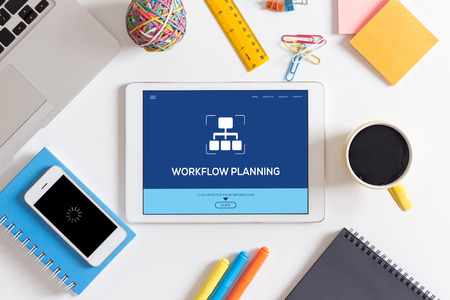1. Understanding What a Gap Year Really Means
When we talk about a “gap year,” were referring to a purposeful break from traditional education or work—usually lasting about twelve months. While originally popular among high school graduates in Europe, taking a gap year has become an increasingly common trend in the United States, not only among students but also among young professionals. In American culture, this option is no longer seen as just “time off”; instead, it’s viewed as a strategic pause to gain life experience, explore career interests, volunteer, travel, or focus on personal development before committing to college, graduate school, or a full-time job. With more people questioning the best path toward their career goals, the idea of hitting “pause” to reevaluate priorities and build skills outside the classroom or office is gaining traction. As you consider your own journey, understanding what a gap year entails—and why so many are choosing it—can help you make an informed decision that aligns with your long-term career plan.
Professional and Personal Benefits of Taking a Gap Year
Taking a gap year is more than just hitting the pause button on your academic or professional journey. When planned thoughtfully, it can become a transformative experience that shapes both your personal growth and your long-term career trajectory. Let’s break down some key benefits you can expect from taking a gap year in the context of today’s competitive American job market.
Skill Development Beyond the Classroom
A gap year offers unique opportunities to build real-world skills that aren’t always taught in school. Whether you’re working, volunteering, interning, or traveling, you’ll likely develop valuable traits such as adaptability, resilience, communication, and problem-solving. These so-called “soft skills” are highly prized by U.S. employers and can set you apart from other candidates once you start job hunting or apply for internships.
| Skill | How a Gap Year Can Help |
|---|---|
| Adaptability | Navigating new environments and cultures sharpens your ability to adjust to change. |
| Communication | Interacting with diverse groups enhances both verbal and written communication skills. |
| Problem-Solving | Real-life challenges push you to think critically and creatively. |
| Leadership | Leading projects or teams during service or work experiences builds leadership confidence. |
Gaining Self-Awareness and Clarity
A gap year isn’t just about professional development; it’s also a time for self-discovery. Stepping outside the routine of school or work allows you to explore your interests, values, and goals without external pressure. Many students find that this period of reflection helps them clarify their career aspirations and academic direction—ultimately leading to more intentional choices when they return.
Long-Term Career Growth Potential
The experience and maturity gained during a gap year can pay dividends throughout your career. In fact, many American employers appreciate applicants who show initiative, independence, and a global perspective—qualities often developed during a well-spent gap year. Additionally, networking opportunities during this time may open doors for future internships or full-time positions. By leveraging these benefits strategically, you can position yourself as a more competitive candidate in any field you choose to pursue.

3. Potential Drawbacks and Risks of a Gap Year
While a gap year can offer valuable experiences, it’s important to consider several challenges that may impact your career trajectory in the United States.
Financial Costs
One of the biggest concerns for many students is the financial aspect of taking a gap year. Traveling, volunteering, or enrolling in specialized programs often come with significant expenses, and not all opportunities provide compensation or scholarships. Before committing, make sure you carefully assess your budget and consider how a gap year might affect your ability to pay for college or living expenses down the road.
Loss of Academic Momentum
Another potential drawback is the disruption of academic rhythm. Taking time away from school can make it harder to get back into study habits and may delay graduation. Some students find it challenging to return to structured learning after a long break, which can impact their academic performance and future opportunities.
Employer Perspectives in the U.S. Job Market
In the American job market, employers’ attitudes toward gap years can vary widely. While some value unique experiences and maturity gained during a gap year, others may question an extended break on your resume if it isn’t clearly explained or relevant to your career goals. It’s crucial to be able to articulate what you accomplished during your gap year and how it adds value to your professional profile.
Navigating These Challenges
If you decide a gap year is right for you, planning ahead is essential. Set clear goals, create a realistic budget, and think about how you’ll communicate your experiences to future employers or graduate schools. By anticipating these potential drawbacks, you can make more informed decisions and maximize the benefits of your gap year while minimizing risks.
4. Common Gap Year Options for Americans
When it comes to taking a gap year, American students and young professionals have a variety of options that are both culturally accepted and beneficial for career planning. The most popular choices include travel, internships, volunteering, and personal projects. Each option not only helps you grow personally but can also align with what U.S. employers value—such as initiative, adaptability, and real-world experience.
Travel
Traveling during your gap year is a classic choice. It’s often seen as a way to broaden your horizons, develop independence, and gain exposure to different cultures. In the U.S., many people view international travel favorably, especially if you can articulate what you learned or how you grew from the experience. Domestic travel is also respected—think road trips exploring national parks or immersing yourself in new cities.
Internships
Pursuing an internship during your gap year is highly regarded in the United States. This path allows you to build professional skills, network within your industry of interest, and possibly discover new career directions. Employers appreciate candidates who have hands-on experience and who use their time proactively.
Volunteering
Volunteer work—whether at home or abroad—demonstrates commitment to service and community engagement, qualities highly valued in American culture. Programs like AmeriCorps or Peace Corps are well-known options that can make a strong impact on your resume. Local nonprofits or global service projects can also provide meaningful experiences that help clarify your values and career goals.
Pursuing Personal Projects
A gap year isn’t just about formal programs; pursuing personal projects such as starting a small business, learning a new skill, or dedicating time to creative endeavors (like writing or art) shows initiative and self-motivation. U.S. employers often look for evidence of passion projects or entrepreneurial spirit when reviewing applications.
Comparing Gap Year Options
| Option | Key Benefits | How It Aligns with U.S. Culture |
|---|---|---|
| Travel | Cultural awareness, independence | Seen as broadening perspective; valued for personal growth stories |
| Internship | Professional skills, networking | Directly supports career readiness; demonstrates initiative |
| Volunteering | Service experience, empathy development | Reflects commitment to community; enhances leadership profile |
| Personal Projects | Creativity, entrepreneurship | Shows passion and drive; highlights unique strengths |
Selecting the right gap year activity means considering both your personal interests and how each option fits into the broader expectations of American employers and academic institutions. By making intentional choices, you can maximize the benefits of your gap year for your future career path.
5. Strategic Planning: Making the Most of Your Gap Year
Taking a gap year can be a transformative experience, but it’s important to approach this time with intentionality. Whether you’re traveling, working, volunteering, or pursuing personal projects, setting clear goals will help you stay on track and ensure your gap year aligns with your long-term career aspirations.
Set SMART Goals
Before diving into your gap year, take time to outline what you hope to achieve. Use the SMART framework—Specific, Measurable, Achievable, Relevant, and Time-bound—to create realistic objectives. For example, if you plan to intern or volunteer, set targets for skills development or networking milestones that support your future job search.
Build Your Resume Along the Way
Don’t let your gap year become a blank spot on your resume. Document your experiences and accomplishments as they happen. Keep a running list of new skills gained, languages learned, or leadership roles taken on. Consider maintaining a portfolio or blog to showcase tangible achievements or reflections. This will make it much easier to articulate the value of your gap year to future employers or graduate programs.
Stay Connected With Your Career Path
A gap year doesn’t mean pressing pause on your professional journey. Stay engaged with your field by following industry trends, reading relevant publications, and connecting with professionals through platforms like LinkedIn. If possible, seek out informational interviews or shadowing opportunities related to your intended career. These connections can open doors when you’re ready to re-enter the workforce or continue your studies.
Tip:
If you’re unsure how best to leverage your gap year for career growth, consider reaching out to mentors or career advisors for personalized guidance.
Bottom Line
Your gap year is what you make of it. With thoughtful planning and proactive engagement, you can turn this break into a powerful launchpad for your future career.
6. How to Communicate Your Gap Year to Employers
Effectively presenting your gap year experience can be a real asset when applying for jobs in the U.S. market. Whether you spent time volunteering abroad, learning new skills, or exploring career interests, it’s important to frame this period in a way that highlights growth and initiative rather than a lack of direction.
Highlight Transferable Skills on Your Resume
When adding your gap year to your resume, focus on the skills and accomplishments gained during that time. Did you develop leadership abilities through organizing community projects? Maybe you improved communication skills by navigating different cultures or learned project management while freelancing. Use action verbs and quantify results where possible—employers love to see measurable impact.
Example:
International Volunteer (Gap Year) — Habitat for Humanity, 2023
Managed a team of five volunteers to construct affordable housing, improving local infrastructure and fostering cross-cultural collaboration.
Craft a Compelling Narrative in Your Cover Letter
Your cover letter is your opportunity to tell the story behind your gap year. Explain what motivated your decision, what you set out to achieve, and most importantly, how the experience enhanced your qualifications for the job you’re seeking. Connect the dots between what you learned and how it aligns with the company’s needs or values.
Tip:
Avoid apologizing for taking time off—instead, confidently explain how your experiences have made you a stronger candidate.
Address Your Gap Year in Interviews
If asked about your gap year during an interview, be open and positive. Practice a concise explanation that emphasizes personal growth, adaptability, and readiness to contribute. Focus on the intentionality behind your choices and share specific examples of challenges overcome or lessons learned that are relevant to the role.
Sample Response:
“During my gap year, I took the initiative to volunteer with Teach For America, where I honed my leadership and problem-solving skills by working with diverse groups of students. This experience taught me resilience and creativity—qualities I believe would add value to your team.”
Final Thought: Authenticity Matters
No matter how you present your gap year, authenticity is key. Employers appreciate candidates who are honest about their journeys and can clearly articulate how past experiences will benefit their organization. By thoughtfully framing your gap year, you can turn what might seem like a detour into one of your greatest strengths as a job seeker.


